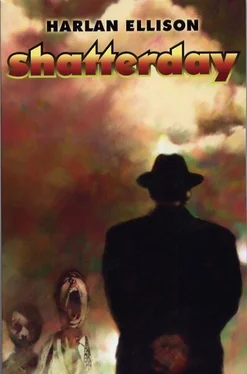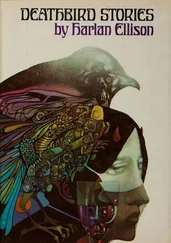Then he actually heard the sirens. He had been hearing them for some time, but had not codified the cacophony. Now he heard it. “What is that?”
Michel shouted. “War. It’s the war; come down; I’m leaving!”
“Leaving? Leaving where, you fool?”
“I’m going. Back to France. The war!”
“Don’t be a fool, Michel. We have a concert tonight.”
“Piss on the concert. I’m leaving! Come down now. I didn’t know war had been declared, but I’m off now!”
“What do you expect me to do about it? Do you think I can go off and stop it like Chamberlain? I’m a violinist, not a political person!”
“If you don’t come down straightaway, I’m off without you!”
“We have contracts! The tour! We will be sued, you fool! Stay in England, play your guitar! You’re no young boy, you’re no soldier… they have enough young boys to play soldier… you’re a musician… come back… Michel! Michel! Come back, you idiot!”
But he ran down the road and fought in the underground with the maquis, and he lost the ring finger and the little finger of his fretting hand, his left hand, and he never saw Anatole, the combo’s violinist, ever again. He became a jazz legend.
His name was Michel Hervé and he died honorably.
Silver droplets fell on the black river. Spattering and then shattering as moonlight carried the molten silver downstream. He sat by the edge of the river, contemplating onyx. He held his guitar tightly, as he had held the manila rappelling sling during that last suspension traversal before the others fell to their death. He thought about them, Bernot and Claudeville and little Gaston, lying dead at the bottom of the crevasse, and he clutched the guitar more tightly. He wanted to play something for them, but he had lost his sentimentality at least a year before, in the face of withering fire from a water-cooled machine gun; and playing a new composition for broken corpses was beyond him now.
He sensed movement at the edge of the river, almost directly across from him where silt had built up the shore and a crossing was possible. He sat very still, hoping the shadows cast by the trees still cloaked him from the eye of the moon. It was an animal.
Something sleek and quick. It dipped its head and thrust its muzzle into the black water. And drank, Something oily and thick extruded itself from the water and wrapped itself around the animal’s neck. There was a moment of slithering, tightening; then the cracking of a twig. The tentacle withdrew below the onyx surface of unrippled water, dragging the dead animal by its neck. A courteous plash of water, and the bank of the river was silent again.
He edged back.
Now he was afraid to play in the darkness. Calling up that killer from the river was a terrifying possibility. And so he sat quietly, holding the guitar tightly; and finally, he slept.
Beside him, the canister of radioactive isotopes cooked, holding death, promising nirvana.
There were wolves in the hollow, and they were eating. Whatever was being eaten was screaming, still alive and very much in pain. He detoured around the rim of the bowl, dragging the canister behind him through the golden sand at the end of a twenty-five-foot length of climbing rope. He had been traveling exclusively by night, burrowing into the sand during the day, hiding from roaming skirmisher packs of Nazi stürmerkommandos, the canister leaking its death in a pit fifty yards away.
On the rim, someone had erected a cairn of stones, pried out of the desert from God only knew where. He had not seen a rock or stone for days. The cairn seemed to be an altar of some sort. He decided to pause there, and have something to eat. He fancied strawberries, but all he had left was the heel of the rye bread and some carrots. He settled slowly to the ground, leaned back against the cairn of dark stones, and took the bread from his jacket pocket.
He ate with eyes closed, pretending to rest. Perhaps there would be a sun tomorrow. For many days now he had been hoping for a sun, any kind of sun. It might tell him where he was. He had the carrots lined up like pens in his inside jacket pocket, with the bushy leaves bunched against his armpit. He withdrew one and took a bite. If there was a sun tomorrow, he would see what color it was, and that might at least tell him if he was still in the world. But what if the sun came up green or blue?
He lay back against the altar with eyes closed and thought about little Gaston. His smile, the dimple that appeared in his chin when he smiled. Lying dead at the bottom of the crevasse now, unsmiling. They shouldn’t have used manila. Would hemp have been any better? Probably not. But climbing had been the only way to escape.
He had trouble putting it all in sequence. Every time he tried, the music would run through his head and he would make up a new tune. He wanted to playa few of them, but there was always the chance that the Nazis were on his trail, following the sound of the music in his head.
It was still bothersome to him that they had managed to pull themselves through when Claudeville and Bernot and little Gaston had fallen and died. It wasn’t right, it wasn’t fair. He wanted desperately to play them a going-away song.
He shifted around and unslung the guitar. He laid it on his lap and touched the strings. He wasn’t sure he could even play with two fingers missing, but the healing had somehow been speeded up by the passage through to this place, and he had been thinking for many days about how he could lay his hand on the neck to do what he wanted to do. It would be a different sound, but it might be a fine sound. He wanted to try, and to try this first time as a going-away song for them.
Knowing he was taking a terrible chance, he raised the guitar and fitted himself to it. Then he began to play, very softly. It wasn’t one of the new tunes from his head, it was one little Gaston had enjoyed. “Rosetta.”
It worked. The fingers that were left accommodated themselves and the song jumped up and out.
He sat there on the golden sand, a carpet of black beneath him, without moon, and the bright snowfall of too many stars above, with his back to the dark altar, and he played. And the shapes that had waited in the darkness came to listen.
One was a creature without eyes that sank its filaments into the sand and absorbed the sound by vibration. Another rolled into a ball and pulsed with soft pastel colors through its scales. Another looked like a flower but had feet and pods where hands should have been. There was a tall, thin one that hummed softly; and a snakelike creature with a woman’s face; and a paper-thin flying wing that swooped in to pick up the sound of “Rosetta” and then sailed away into darkness, only to return again and again as though refilling itself.
After a long while, Michel Hervé realized he was not alone. Because his eyes had been closed, and because he had been living with the music, he had been in their company and had not known. He stopped playing.
The flower began to wilt, the ball of pastel scales went gray, the flying wing sailed away and did not return, the creatures grew silent and hummed no more. He understood, and began strumming softly. They perked up. He smiled.
“Do any of you speak?” he asked. There was no answer, but they listened. “We had to climb to escape the Boches,” he said, talking to them, not to himself, and letting the music of one of the new tunes flow along as background. “I’ll have to tell Bernot’s daughter how he died, if I ever get back. I could hear him asking for absolution as he fell. He was much older than Gaston, and I didn’t know him as much, but I think that long after I’ve forgotten certain things about Gaston, I’ll be able to smell Bernot’s pipe tobacco.”
Читать дальше












